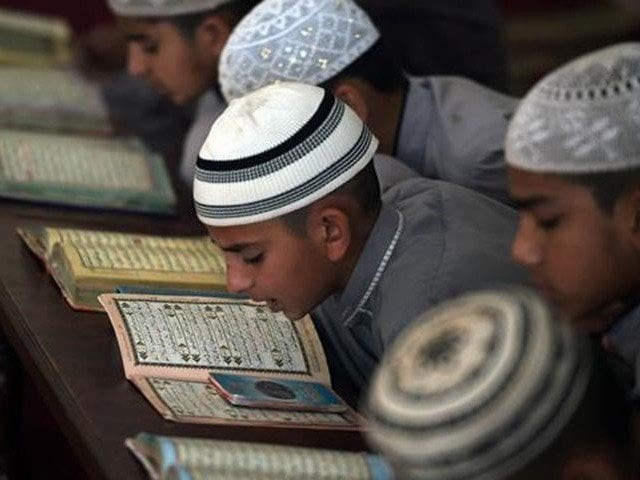Seminaries Registration Act across Sindh. PHOTO: AFP
FAISALABAD:
The Faisalabad district administration has launched a door-to-door survey of mosques and seminaries as part of a province-wide initiative to bring all religious institutions under a legal framework and common regulatory mechanism.
Official sources said the move follows directives from the Punjab Home Department, which has issued detailed guidelines for compiling data on mosques, prayer leaders and affiliated seminaries across all 40 districts of the province.
Punjab is home to an estimated 68,540 mosques, of which around 5,600 are located in Faisalabad district alone.
Sources said revenue officials have been mobilized across all six tehsils of Faisalabad to collect information using a standard proforma issued by the provincial interior ministry.
The study seeks to document details such as mosque names, sectarian affiliations, year of establishment, land size, capacity and jurisdiction, along with the details of prayer leaders and mosque management committees.
The data form also includes information on the mosque’s location, police station jurisdiction, number of daily worshippers, Friday congregations, presence of ablution areas, toilets, residences for imams and any associated seminaries.
For each prayer leader, details such as name, father’s name, CNIC number, qualifications, date of birth, contact number, period of service and permanent and temporary addresses are recorded.
Committees in charge of mosque affairs are also required to disclose the names, CNICs and contact numbers of their presidents and general secretaries.
The Punjab government has directed that the investigation should be completed by Friday (today) without delay.
Additional Deputy Commissioner (General) Fazal Abbas told reporters that the purpose of the investigation is to curb the flow of illicit funds that could be used for terrorism and to counter the spread of extremist ideologies.
“Punjab government aims to ensure transparency and accountability in the running of all mosques and seminaries,” he said.



